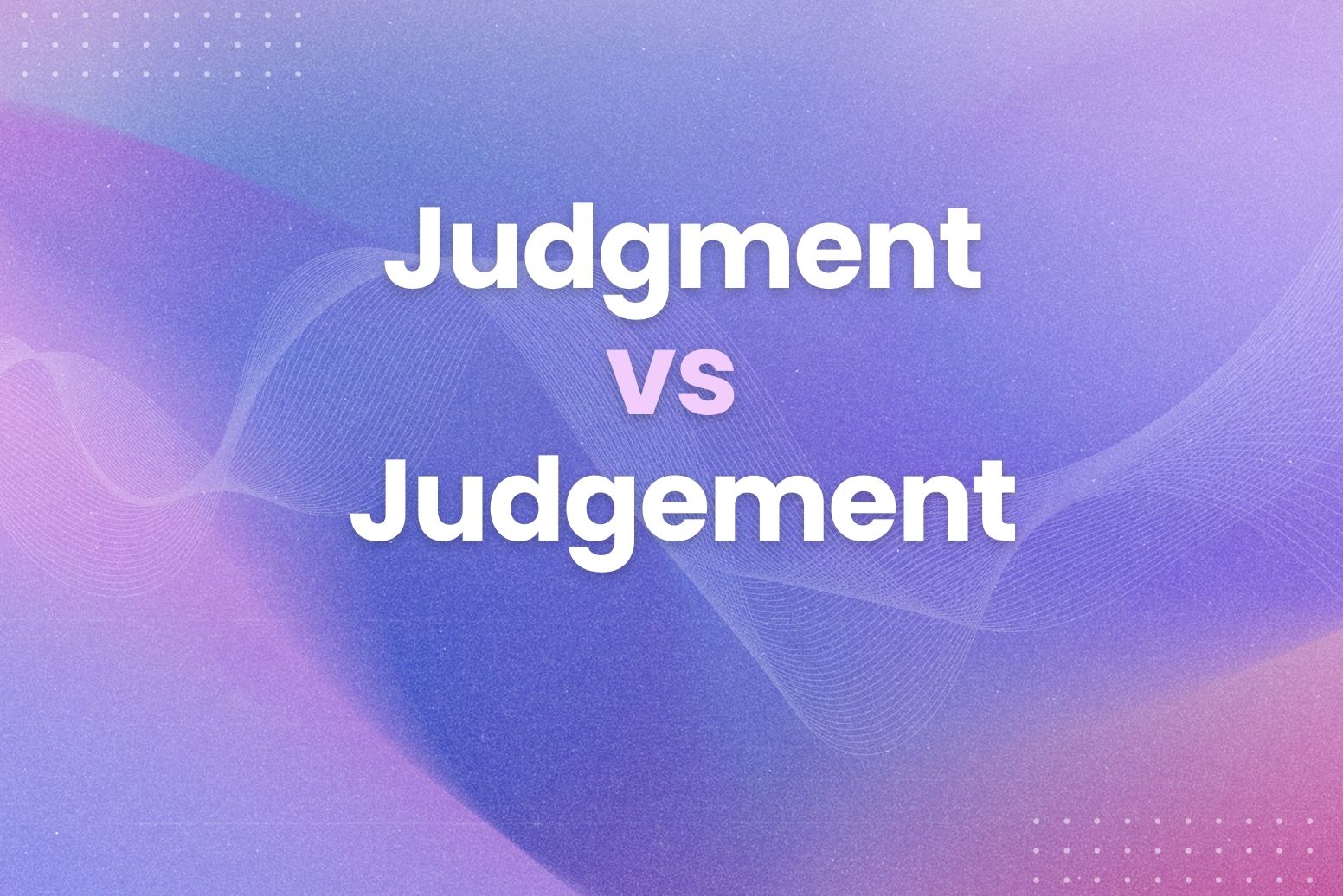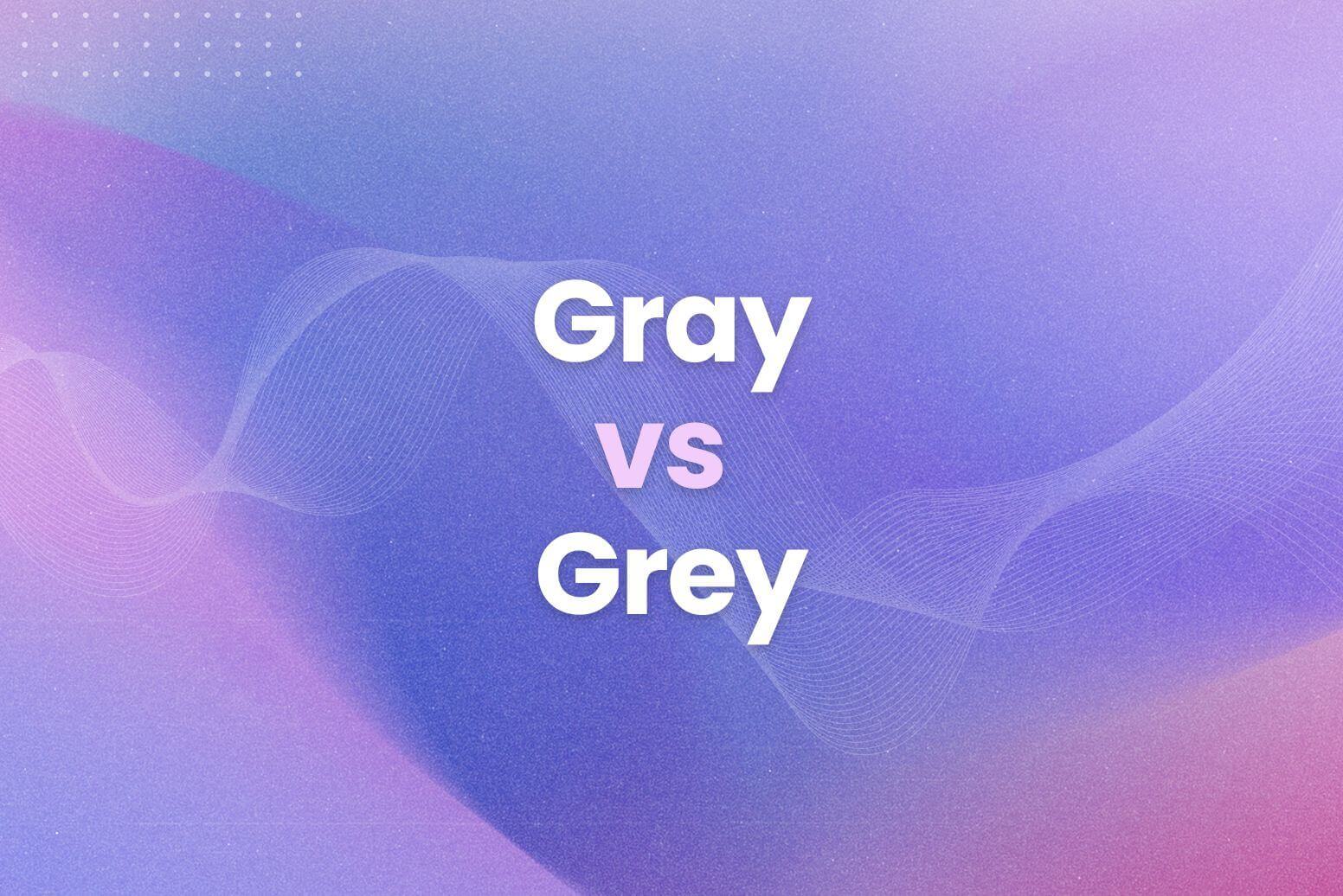Judgment or judgement? Even the best writers sometimes pause at this word. It’s a common spelling conundrum that can trip up anyone. But fear not because this guide will be your quick and easy solution to mastering the correct usage.
Here’s what we’ll cover:
- Firstly, we will start with the difference between “judgment” and “judgement”
- Then, which spelling is correct (and why it matters)
- Lastly, how to use both spellings confidently
In the end, you’ll be a spelling expert enough to quickly tackle any writing task. Let’s find out.
The Difference Between “Judgment” and “Judgement”
So, what’s the deal with these two spellings? In short, it comes down to where you live. “Judgment” is the preferred spelling in American English. “Judgement“ is more common in British English.
Think of it like “color” vs. “colour.” Same word, different style. However, there’s a bit more to it than that.
Interestingly, both spellings have the same origin. They both come from the Old French word “jugement.” Over time, the spelling evolved differently in different places. For instance, Noah Webster, the American lexicographer, dropped the “e” in his 1828 dictionary. This helped solidify “judgment” as the American standard.
However, even in British English, “judgment” is gaining popularity. Many publications and style guides now prefer shorter spelling. Why? Perhaps it’s simpler. Maybe it’s just the influence of American English.
To conclude, both spellings are correct. The key is to be consistent. If you’re writing for an American audience, use “judgment.” For a British audience, “judgement” might be more traditional. But honestly, most people won’t bat an eye at either spelling these days.
Judgment or Judgement in Examples
Let’s see these spellings in action. Sometimes, the best way to learn is by seeing real-world examples.
Here are a few sentences using “judgment”:
- “The judge made a fair judgment in the case.”
- “Her judgment was clouded by her emotions.”
- “He showed poor judgment by investing in that company.”
And here are a few with “judgement”:
- “The court issued a judgement against the defendant.” (This feels more formal, even to my American eyes)
- “She exercised good judgement in her choice of friends.”
- “His lack of judgement led to his downfall.”
Notice how both spellings work in different contexts. It’s more about the overall style and tone of your writing.
For example, if you’re writing a legal document for a British court, “judgement” might be the better choice. But if you’re writing a blog post for an American audience, “judgment” is probably the way to go.
Still unsure? Arvin can help. Our AI-powered grammar checker can analyze your writing. Also, it can suggest the best spelling based on your audience and context.
Mastering Both: “Judgment” and “Judgement”
Want to use both spellings with confidence? Here’s the secret: consistency and audience.
- Firstly, pick a lane. If you’re writing for an American audience, stick with “judgment.” Likewise, if you’re writing for a British audience, “judgement” might be the preferred choice. This keeps your writing consistent and shows respect for regional preferences.
- Secondly, know your style guide. If you’re writing for a publication or organization, they might have a specific style guide. Always follow their rules, even if they differ from your personal preference.
- Thirdly, use your judgment.Sometimes, the context might call for a specific spelling. For example, if you’re quoting a British author, it makes sense to use their original spelling, even if it’s “judgement.”
- And finally, don’t sweat it too much. Honestly, most people won’t notice the difference between the two spellings. As long as your writing is clear and engaging, that’s what matters most.
Write with Confidence, Judge with Ease (and Arvin)
The judgment or judgement dilemma is solved. Now, you can confidently tackle this tricky spelling in your writing. Consistency is key, but don’t let it steal your focus from crafting awesome content.
Here’s a quick recap on judgement or judgment:
- First of all, “judgment” is preferred in American English.
- Secondly, “judgement” is more common in British English (but even there, “judgment” is gaining traction).
- Then, both spellings are technically correct.
- Lastly, the most important thing is to be consistent and follow your chosen style guide.
Now, about that awesome content… Want to make sure your writing is always top-notch? Arvin can help. Our AI-powered browser extension catches grammar and spelling errors in real-time. This helps you confidently write and focus on what matters most: your ideas.
Plus, it can even help you tailor your writing to different audiences. This ensures your spelling of “judgment” (or “judgement”) is always spot on. Give it a try and see the difference,
FAQs
Which one is correct, “judgement” or “judgment”?
Both are correct. “Judgment” is the preferred spelling in American English. “Judgement” is more common in British English. However, both spellings are widely understood.
Why do we drop the “e” in “judgment”?
The “e” was dropped in American English, thanks to Noah Webster. He simplified many spellings in his 1828 dictionary, including “judgment.” This helped establish “judgment” as the American standard.
Is it “judgement” or “judgment” in the UK?
Traditionally, “judgement” has been the preferred spelling in the UK. However, “judgment” is becoming increasingly common, even in British English. Many style guides now favor the shorter spelling.
Do you use your “judgement” or “judgment”?
It depends on your audience and context. If you’re writing for an American audience, use “judgment.” For a British audience, “judgement” might be more traditional. Ultimately, consistency is key.
Is it “passing judgement” or “judgment”?
It depends on your audience and context. But generally, “passing judgment” is more common, even in British English. This phrase is often used figuratively, meaning to express an opinion or criticism.
When did “judgement” become “judgment”?
The shift towards “judgment” in American English began in the 19th century with Noah Webster’s dictionary. However, the transition has been gradual. And both spellings have coexisted for a long time.






